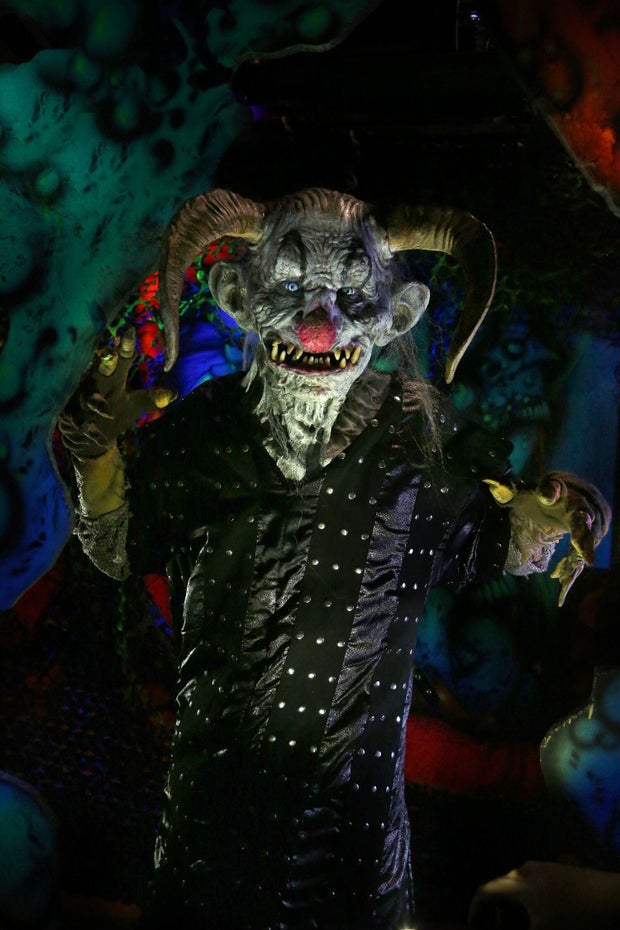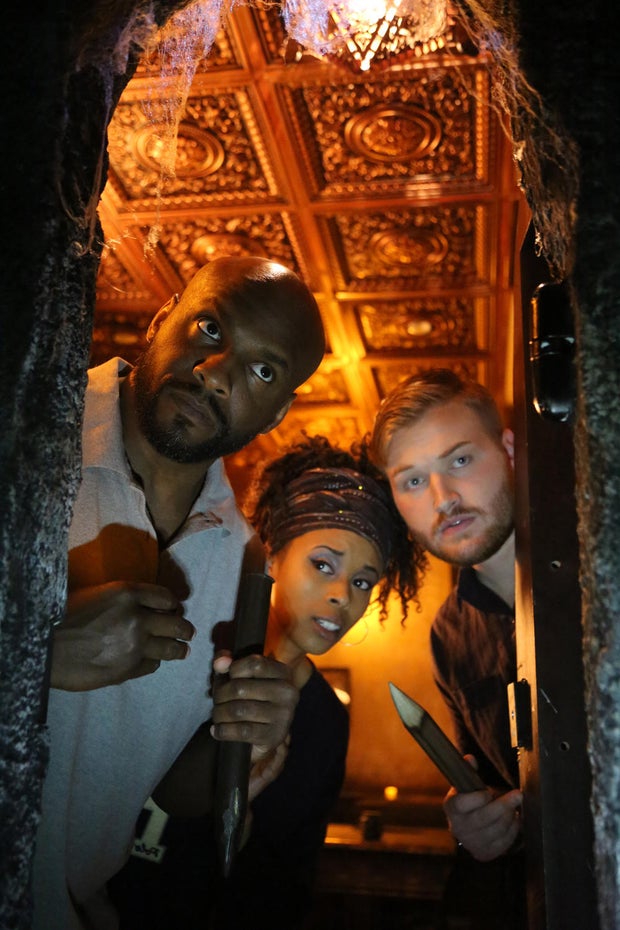
Sensitive souls should think twice before setting foot in a haunted house this Halloween. The same could be said for those considering getting into the business of running a haunted house.
“The barriers to entry are much higher to get into the haunted house attraction business – the rules, regulations and expenses to get in, even what people perceive as entertainment,” said Billy Messina , co-creator of Netherworld, an attraction that has scared people in Stone Mountain, Georgia, for nearly 30 years. “A bunch of teenagers saying ‘Boo!’ — it won’t fly anymore,” Messina told CBS MoneyWatch.
Netherworld Haunted House
Unlike haunted house fundraisers held by civic organizations such as Junior Chamber of the United States, also known as Jaycees, Netherworld is one of about a dozen haunted houses that can be considered large-scale productions. Broadway scale. And unlike the volunteer-run neighborhood haunted house, these Halloween attractions are professional outfits staffed year-round, although the profit window is much shorter, just a month or two around Halloween.
“Our revenue cycle is very short, the lion’s share of our revenue is in a 2-3 month window,” said Chris Stafford, CEO and founding partner of Thirteenth Floor Entertain Group. Headquartered in Denver, Colorado, Thirteenth Floor operates 32 attractions, including haunted houses and Halloween festivals across the country, selling hundreds of thousands of tickets each year.
“We own most of our properties year-round, so we have an annual operating plan to make sure the revenue we expect is going to come in,” said Stafford, who worked in banking for 12 years before to turn what had been a beloved hobby into a full-time career.
“It’s a tough business with a staff and a mortgage that’s open all year round, and then you have 20 to 30 days to make sure you cover all those basic expenses. It’s a challenge,” Messina said , who started in the film industry as a makeup and special effects artist. Still, “it’s pretty incredible to be able to do this for a living,” he added.
Thirteenth Floor Entertainment Group
Both share a passion for haunted houses that began during their childhood.
“I worked at a local haunted house with a friend from high school. I really loved everything about it, some of my best memories are from there,” Stafford said, reflecting on his experiences as a 15-year-old working at a haunted house. family home. -runs a haunted house in Denver.
Growing up in New York, Messina remembers seeing commercials on television for haunted houses on the Jersey Shore and wanting but unable to go.
Like many other businesses, Messina and Stafford view the job as a huge challenge.
With a full-time staff of about 15, Netherworld also hires about 500 seasonal workers as parking attendants, catering and customer service workers and, of course, to scare people. “For new employees, the hiring drive starts in August and really gets going in mid-September. We have students all the way up to white-collar workers who just want to be a part of it,” Messina said.
Netherworld Haunted House
Netherworld’s base pay starts at $8.50 per hour. “People are not in it for the money and they are not afraid,” Messina said.
The thirteenth floor has a full-time staff in marketing and finance, and “then comes the season and we scale up and hire literally thousands of people to work – the biggest challenge is probably recruiting a workforce- such a large amount of work in such a short time,” Stafford proposed. “Most of our scare actors are not professional actors, but interested in learning,” he added of positions paying just above minimum wage.
A significant percentage of the seasonal workforce returns each year, the two men relayed.
Ticket sales keep Netherworld afloat, and outside factors, including weather and sports, can have an impact beyond Messina’s control. “Rain is devastating for attendance, or if the [Atlanta] The brave are in the [National Baseball League] “The concessions and gift shop aren’t enough to keep the lights on. We don’t lose money on that kind of thing, but it’s not a cash cow by any means,” Messina noted.
Thirteenth Floor Entertainment Group
Both men named Netflix as their main competitor. “Just getting people off the couch is hard,” Messina said, adding that Thirteenth Floor strives to give people a reason to gather socially. “Too much of our lives take place digitally, behind a screen,” he said.






